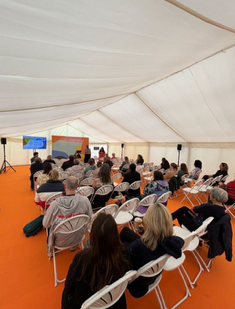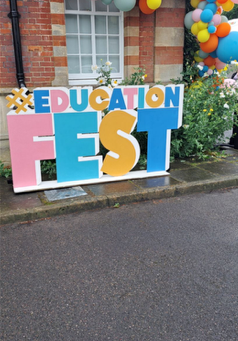EQUALITY, DIVERSITY AND INCLUSION (EDI)
Equality, Diversity and Inclusion (EDI)
As the national co-founder and lead of BAME Education SEND, I am privileged to work at the intersection of education, special needs, and cultural inclusion. A recent highlight of this journey was presenting at the Wellington College Festival of Education, where I led a talk on how Special Educational Needs and Disabilities (SEND) are viewed across different cultures and how schools can better engage parents from all community groups, including those whose first language is not English.
SEND Across Cultures
SEND is approached differently across cultures. In some communities, there may be stigma or misconceptions about disabilities, while in others, there may be differing expectations of how schools should support children with SEND. Recognising and respecting these differences is essential to building trust with families.
Research by Gillborn et al. (2018) underscores how cultural barriers can impact engagement with schools, showing that a lack of cultural sensitivity can lead to disengagement from school workshops or communication. These families can be labelled as "hard to reach". This understanding was a key focus of my talk, where I emphasised the importance of cultural awareness and adapting school practices to meet families where they are.
From "Hard to Reach" to "How You Reach"
A key focus is shifting the perspective from labeling families as "hard to reach" to reflecting on "how we reach" them. Adapting school approaches to connect with families in culturally, linguistically, and geographically relevant ways can significantly improve relationships.
Successful strategies implemented include:
· Translating surveys into home languages
· Hosting remote coffee mornings - both virtually, and within the community.
· Meeting families in their communities
· Seeking feedback on curriculum and support
These efforts have resulted in increased trust and stronger relationships with families, enabling more effective collaboration to support children with SEND.
Practical Steps for Inclusive Engagement
Research from DfE (2020) and our own experiences highlight key strategies schools can use to build meaningful engagement:
· Accessible Communication: Translate materials, provide interpreters, and use plain language to ensure parents can fully engage with school communications.
· Cultural Awareness: Train staff in cultural sensitivity to understand and respect the unique needs of diverse communities.
· Parent Advocacy: Work with parent volunteers or advocates to bridge gaps and make school processes feel more approachable.
· Action-Oriented Feedback: Act on parents' feedback and clearly communicate how their input has shaped school decisions, reinforcing trust and collaboration.
Transforming Lives Together
One of the most rewarding outcomes of these efforts is the positive impact on our students. When families feel connected, understood, and supported, their children thrive both academically and socially.
We are committed to ensuring that every family feels part of our school community. This partnership between school, families, and communities is what makes it possible for all children to succeed, regardless of their background or abilities.
Exciting News
A publisher was present in one of my talks and offered me a book deal to write about the topic in more depth. I am thrilled to share that my book will be released next Spring!!! The book explores themes of SEND, cultural inclusion, and building effective parent partnerships. I will provide more details closer to the release date and look forward to sharing this journey with you.




 Academy Trust
Academy Trust